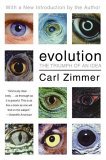
I am more than a little irritated.
This is not how I normally feel after listening to one of my favorite podcastlets "
Our Ocean World" broadcast on the local public radio station most mornings.
As a landlubber biologist, I love learning about the fascinating and often bizarre creatures in the ocean, and therefore really enjoy this brief dose of news from the biggest biome on earth. Especially because it typically comes on when I'm dropping my daughter off at school in the mornings, giving us something wonderful to share.
But today's segment (which came on just after I dropped the kiddo off -
sorry I was unusually early!) on Tuna, titled
Big Fish, Big Sea, really pushed some sensitive buttons. It could be that I had just finished grading finals for my Evolution class, and was particularly touchy about evolutionary misinterpretations. But no, this particular gaffe came from a Stanford Professor of Marine Sciences, no less, and is therefore even less acceptable for being broadcast on the radio!!
Professor Barbara Block, the tuna expert featured in today's podcast, described these no doubt remarkable fish as being
at the top of a bleeping "evolutionary ladder"!! She also said Tuna were "
more evolved" than other fish! And that
they were on a "pinnacle of evolution"!!!#$*!!!
More than once! (I checked. I hadn't misheard).
And here I thought we had
buried that damned metaphor of evolution being a ladder for good! Heck, I try to bury it ritually for my students every semester in all of my classes, starting with Intro Bio. Yet it keeps rising, like a zombie, even from the mouths of accomplished biologists!! What's it going to take to purge this metaphor entirely from our vocabulary, folks?!
And while on the subject, let's also be clear that no species is "more evolved" than any other. How could they be? If you accept the evidence that we all come from one common ancestor, that the
tree of life has one common origin, then every living species has been subjected to the vicissitudes of life on this planet for the same overall length of time, no?! We may have taken different, often surprising and bizarre, twisting branching paths on this journey, but we've all (except those branches that went extinct along the way) traveled the same length of time, have we not? How can any one of us, bacterium to tuna, virus to human to dolphins who say
thanks for all the fish, then claim to be "more evolved" than any other species?
Granted there are local peaks and valleys in the
fitness landscape for any species, and natural selection may be constantly trying to push us onto the nearest one - but there are no lofty "
pinnacles" that we can be proud of conquering! If anything, given the dynamic nature of our world and the new curveballs nature keeps throwing at us, being stuck on any tall pinnacle could lead to the worst sort of evolutionary dead-end. We're probably far better off
wandering around local peaks and remaining capable of even drifting across the fitness landscape. Definitely don't want to be stuck on any too tall peak, thank you very much! In fact, as my friend
Andrew Jones just reminded me,
all species evolve to extinction!
Although, now that I think about it, perhaps most other species on this planet, our fellow travelers in the evolutionary journey, are hoping that we humans have reached exactly such a pinnacle, and are, even more hopefully, about to fall off our lofty perch for good. Perhaps from these new
ecofriendly smokes.
Meanwhile, repeat after me (especially if you are a biologist):
Evolution, in fact, is best described as a
TREE:
And remember, the only thing we are all definitely evolving towards is EXTINCTION!
Thank you!!
Reference:
Andrew R. Jones (2009). The next mass extinction: Human evolution or human eradication? Journal of Cosmology, 2, 316-333



















